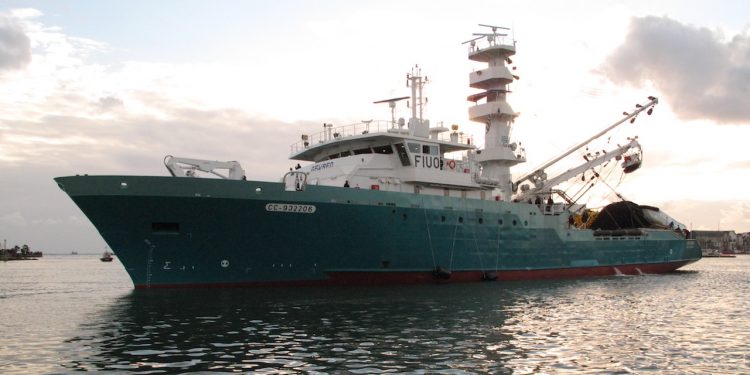French tuna operators’ body Orthongel, which represents fishing companies CFTO, Sapmer and Via Océan which fish for yellowfin, bigeye and skipjack in the Indian and Atlantic Oceans, is calling for a revision of regulations relating to tolerance margins on catch and landing estimates.
According to Orthongel, considering the circumstances of this distant waters fishery, current provisions have been shown to be totally impossible to apply – which is confirmed by scientists – and puts the vessel operators in the situation of committing systematic infringements. The month the European Parliament will examine the report of the Fisheries Commission on the revision of Regulation (EC) No 1224/2009 establishing a Community control system (known as the control regulation).
The stakes are high for European tuna fishermen, their companies and their supplier partners. This is a question of survival, according to Orthongel.
Under the revised control regulation skippers are required to estimate accurately, with a maximum margin of error of 10% compared to final sales notes, the quantities of tuna caught and then landed by species (yellowfin, bigeye, skipjack). If the margin of error turns out to be greater than 10%, both skippers and owners are penalised. Sanctions can extend to withdrawal of fishing rights, consequently jeopardising fishermen’s livelihoods.
Orthongel states that the reasoning behind the control regulation was to provide a framework for the EU fleet landing in EU ports and does not take into account the realities of deep sea tuna purse seiner operation – while the required tolerances are virtually impossible to apply due to the rapidity of catch handling necessary when working in tropical temperatures and the strong resemblance of yellowfin and bigeye in particular.
In 2009, French Research and Development Institute IRD stated that ‘it is not possible for a skipper to give a reasonable estimate of the specific composition of the catch.’
In addition, there can be a delay of several weeks in obtaining full documentation when the canneries are not close to landing ports – so that operators are in the position of potentially making an inaccurate landing declaration – losing fish in the case of underestimating and losing quota in the case of an over-estimate – or making a late declaration, which is also an offence.
‘Orthongel’s members do not dispute the need for control, especially with regard to species subject to quotas. However, they ask that this control be compatible with the specifics of their activities in tropical areas outside European waters and ports, which does not allow precise estimates of the catch on board,’ said Orthongel President Yvon Riva.
‘Penalising them for something that is recognised by scientists as impossible to achieve is both unfair to our seafarers who do their utmost to comply with the regulations and ineffective in ensuring that quotas are respected.’
He commented that lengthy explanations do not appear to have been heard by European legislators, and the next EU decisions are crucial, as they will lead to suspensions of EU licenses in less than a year. In the medium term, if the regulation does not change, it is an inevitable immobilisation of the fleet as a whole.
According to Orthongel, the solution would be to apply the tolerance margin to the total quantity landed, as is done with the exemption granted to small pelagics fisheries.
‘By applying the 10% tolerance margin not by species of tuna but for the total quantity of tuna landed, skippers would not then find themselves committing systematic violations,’ Orthongel stated.









